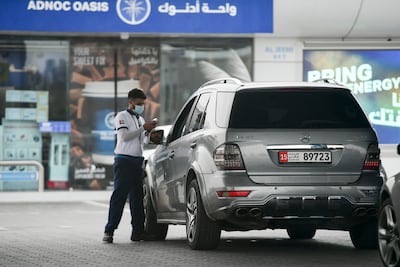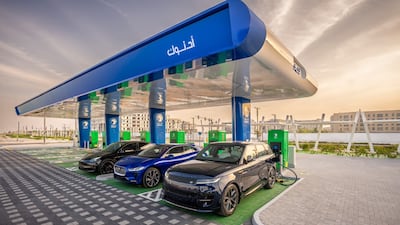How we move is an essential part of how society works.
Advancements in the mobility sector have expanded accessibility and opportunity – as we are able to grow economies and support communities – by enabling the movement of people, goods and services.
However, we are at a tipping point when it comes to the way we move. With the world’s growing population, there is a rising demand for energy and the need for long-term sustainable transport systems. While there are challenges across all modes of transport, it is personal mobility that is likely to be the most affected.
As evident at the recent Electric Vehicle Innovation Summit in Abu Dhabi, the sector is undergoing a rapid transformation. The aim is to make it more intelligent, efficient and clean – releasing fewer emissions and pollutants. This requires a profitable business model for sustained investment and innovation.
Investment in mobility a key driver of change
One of the key drivers of change in the mobility sector is investment. The UAE, through its National Smart Mobility Strategy, intends to be among the world’s leading countries in smart intermodal mobility by 2030. The country is investing in compatible infrastructure, integrated mobility systems, and dynamic policies and regulation.
The rise in EV demand across the Emirates is being supported by major government initiatives. For instance, on May 20, the Ministry of Energy and Infrastructure and Etihad Water and Electricity formed a joint venture, called UAEV, to promote fast and accessible EV charging infrastructure across the country.

It’s not simply about money. Investment also means creating an environment conducive to innovation and entrepreneurship. This includes policies that support start-ups and small businesses, as well as regulation that promotes competition and consumer choice.
Abu Dhabi's comprehensive mobility strategy, the Abu Dhabi Surface Transport Master Plan, aims to enhance the transport system and improve mobility experience. The strategy includes plans to expand the bus and metro network and introduce new modes of transport.
EVs and alternative fuel vehicles
Innovation is at the heart of the mobility revolution. From EVs to ride-sharing apps, new technology is transforming the way we move around. One of the most exciting developments is the rise of autonomous vehicles, which have the potential to reduce accidents, improve traffic flow and make transport more accessible.
However, innovation also means creating new business models and partnerships that can deliver value to consumers.
Abu Dhabi has seen a substantial increase in the number of EVs on the roads. .
However, EVs still represent less than 1.3 per cent of Abu Dhabi’s more than 1.2 million vehicles, highlighting significant growth potential.
The UAE is also exploring alternative fuels through its National Policy on Biofuels – something in which Adnoc Distribution has also invested, having modified our heavy vehicle fleet to run on B20 biofuel in 2023.
The country also has a National Hydrogen Strategy, which aims to help the UAE become a leading hydrogen producer by 2031 and develop policies to support its growth as a sustainable fuel for the future. In December 2019, the UAE launched the trial run of the first hydrogen taxi in the Middle East.
The Integrated Transport Centre of Abu Dhabi (ITC Abu Dhabi) is exploring opportunities for hydrogen fuel technology as part of a wider exploration into sustainable mobility, including for government and non-government buses, trucks and taxi fleets.
To support the UAE’s Net Zero by 2050 Strategic Initiative, Adnoc Distribution teamed up with ITC Abu Dhabi and global industrial gases and engineering company Linde to open the region’s first high-speed green hydrogen pilot refuelling station in Masdar City.
Launched in November, the pilot caters to a fleet of hydrogen vehicles provided by Toyota, Al Futtaim Motors and BMW, and is being tested by taxi companies, including Tawasul, and supports our plan to reduce carbon emissions by 25 per cent by 2030.
EV infrastructure
Despite the opportunities presented by the mobility revolution, challenges remain. One of the biggest is the need to create a more sustainable and environmentally friendly transport system. This will require a significant shift towards EVs, as well as investments in public transport and infrastructure.
In the UAE, we are ahead of the curve. The Ministry of Energy and Infrastructure is leading an ambitious plan to develop a national ultra-fast EV charging corridor.
EV infrastructure is an integral part of our strategy. In the first quarter of this year, Adnoc Distribution's number of fast and super-fast chargers installed hiked to 90 across the network, rising 70 per cent compared to the same quarter in 2023. We plan to have a total of 150 to 200 by end of this year and are targeting at least 500 charging points across the UAE by 2028. This will help assuage anxiety, one of the biggest concerns held by consumers around EV adoption – not only in the Middle East but worldwide.
By continuing to invest in innovation and technology, we can contribute to creating a mobility system that is safer, more efficient and inclusive while also continuing to deliver value for our customers, business partners and shareholders.
Bader Al Lamki is chief executive officer of Adnoc Distribution

